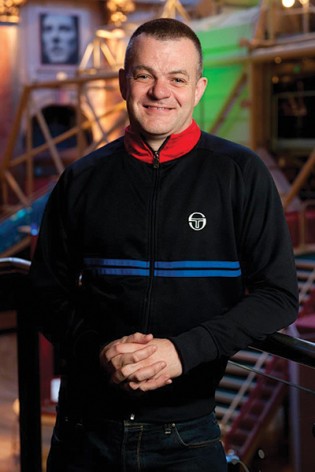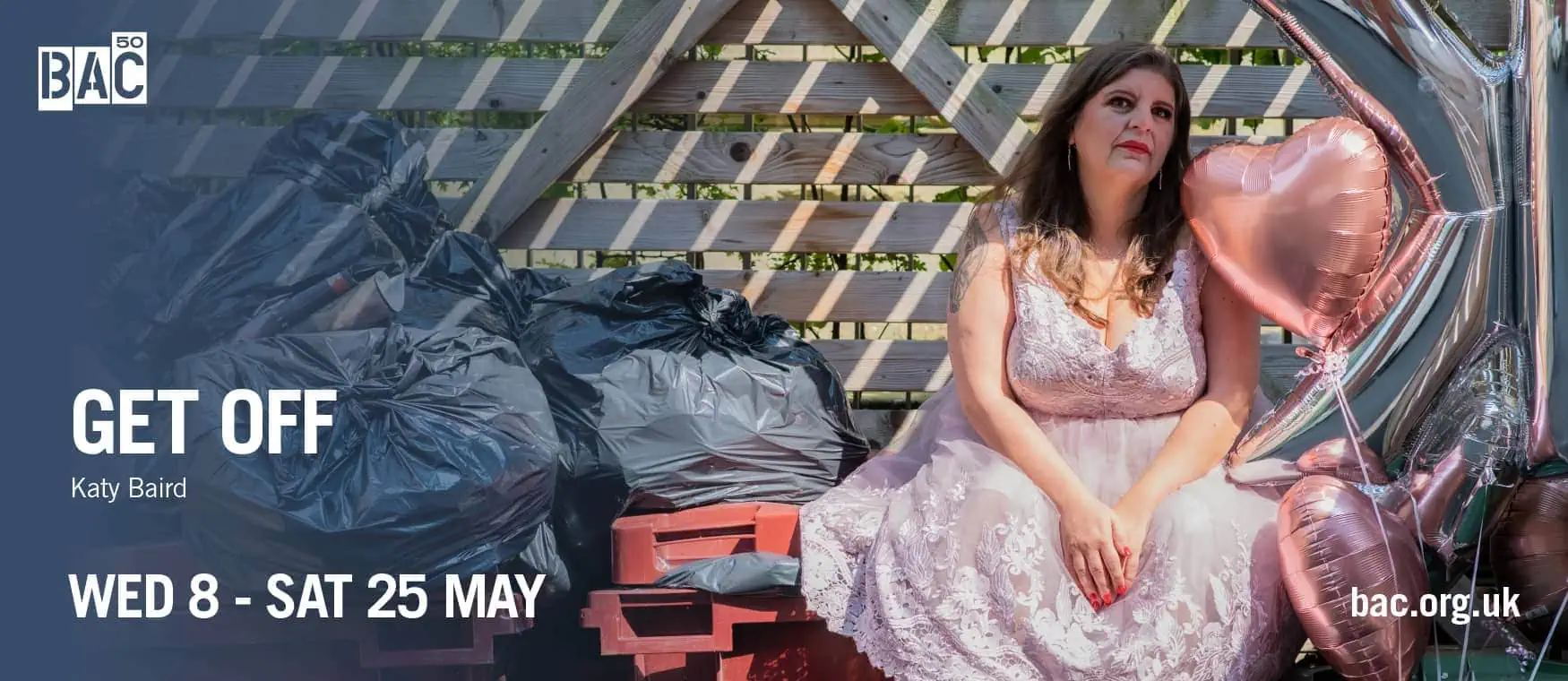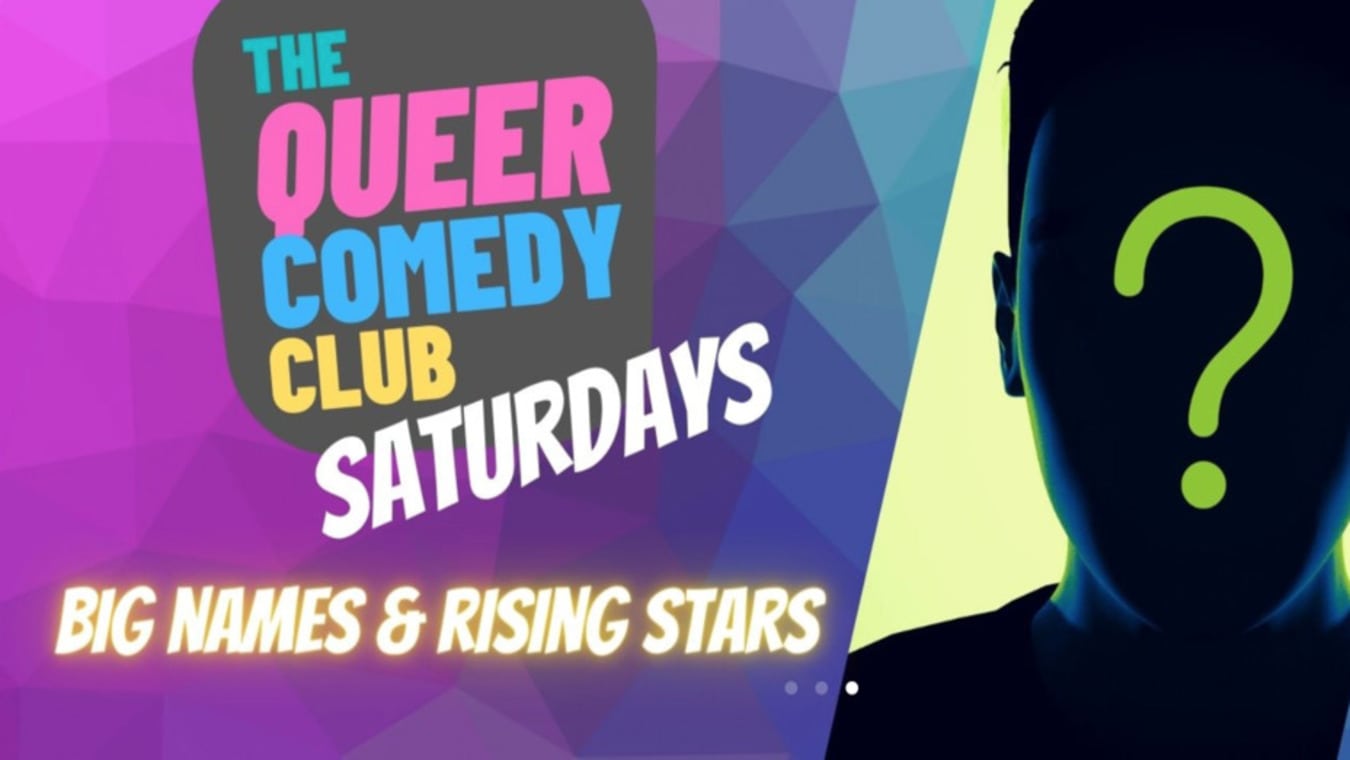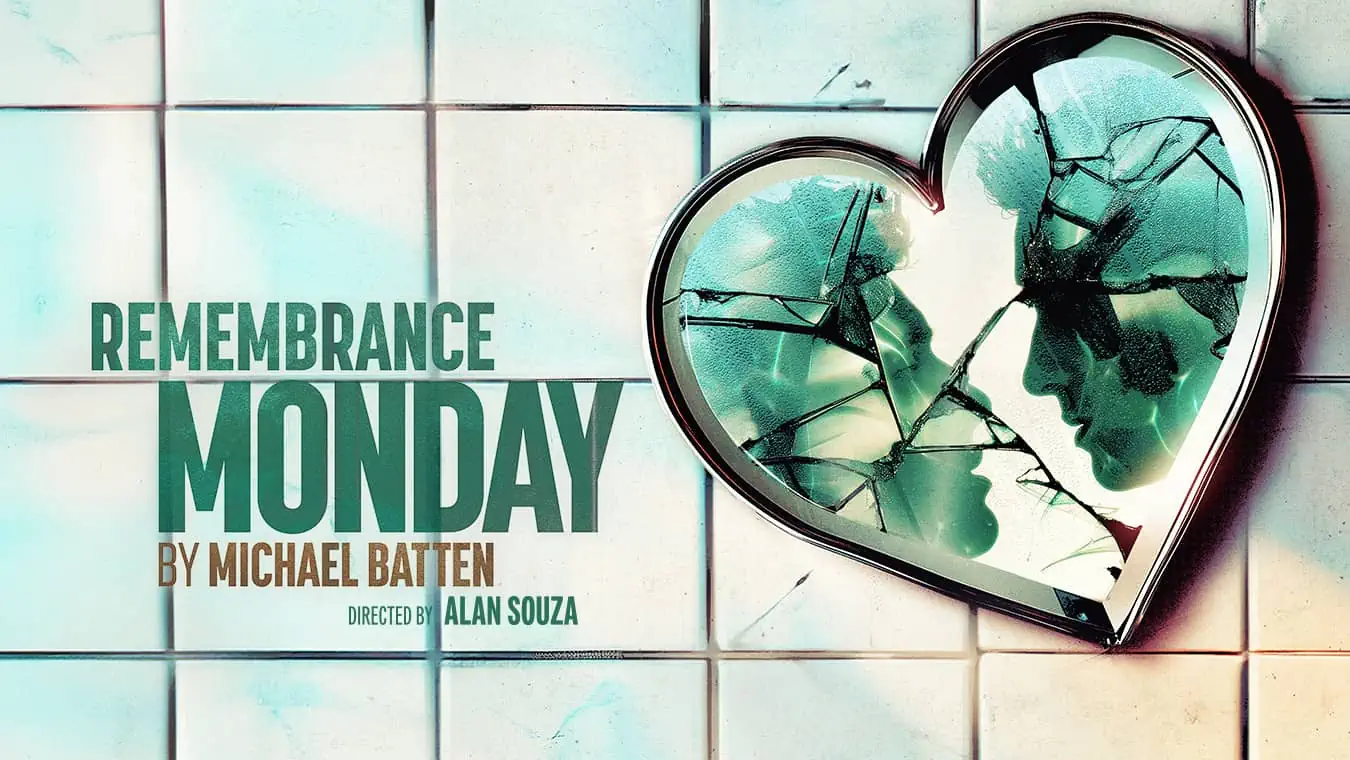Twenty years ago Beautiful Thing was performed on stage for the first time, garnering rave reviews. The story and subsequent film version became a contemporary gay classic, depicting a teen love affair between friends on a council estate in London. Its relevance today is testament to the talent behind the play, writer Jonathan Harvey, who has since added to his credentials sitcom Gimme Gimme Gimme and Coronation Street. Cliff Joannou met him during rehearsals of the latest stage version…

I know. It’s very surreal.
Thinking back, how long did it take you to write from initial idea to finished script?
I was teaching and I know the first draft took two weeks to write long hand. Then I typed it up on my typewriter in two weeks and I spent the last two weeks of the six-week teaching holiday trying to get an agent with the script. I’d had an agent since I was eighteen who’d I’d got from winning a competition. [They] got rid of me when I started teaching saying I wasn’t taking my writing seriously. I’d got my new agent by the time I went back to teach. But then the play wasn’t on for another year, so I’d done several drafts of it since then, but it didn’t take forever. I was hungry to write at the time. It was the first time I was really honest in my writing, which I think is why it was the success it was, because I sort of discovered my own voice. I started being honest about the things I cared about, so the writing became better.
I’m just thinking back at the history of where we’ve been and where we’ve come from as a community and the changes in law since 1993, everything from equalisation of the age of consent, the repeal of Section 28, partnership laws, gay marriage. But one of the things I would say hasn’t changed is the issue of gay bullying amongst teenagers. It’s become more widespread, or we’re just talking about it more, so while we’ve had all these advancements, that whole issue of coming out in your teenage years hasn’t actually changed or advanced.
I have to be honest, I don’t know that many gay teenagers anymore as I’m 44. Just because legislation changes it doesn’t mean racism or homophobia goes away. I’m aware homophobia still exists. But yes, it was a very different world and part of the reason for writing the play was because there was an unequal age of consent. I wrote the play in 1992 and part of the reason was that there were discussions in the House of Lords about bringing it down from the age of 21 and all they talked about in their posh voices was anal sex. It was all about buggery and it was all because they’d been buggered at public school, I thought. I saw nothing about my life in the things they were discussing and yet they were making the laws about people like us. So that’s why I wanted to write it. I ostensibly made them just under 16 and falling in love, which is what I thought being gay was about and not just taking it up the arse. I’d never really seen my experience on stage before, or a gay working class story where everything went OK in the end. It would usually be that you were kicked out on the street and become a rent boy or something. So, that was certainly a political reason for writing the play. I remember when we did a tour, there was a big debate at the time and a lot of the reviews said ‘if only the Tories would come and see this play’.
So the play was founded out of a political message?
Definitely. I’d gone to a talk by the writer Sue Townsend in 1992, who wrote the Adrian Mole books, and she said that she felt writers wrote best from a sense of outrage and anger and if you were angry and outraged about something then you would probably do your best work. And that’s certainly how I felt whilst writing the play, now its not an angry play or about outrage, but that’s certainly where it came from.
Maybe that’s why it’s so timeless.
Yes, it’s not specific to “let’s talk about the age of consent”, that’s the subtext.
This play will reach out to a lot of people who have no idea about the original production or film, but the messages are still relevant today, which is so wonderful about the story…
I suppose there’s that timelessness of coming out and coming of age.
Was it difficult to get a gay play produced in ‘93?
No, it wasn’t. It was turned down by about three theatres before the Bush said yes, but that was pretty standard in those day. What was interesting more was when we were making the film, the crew would turn it down saying it was too much of a risky subject matter.
You said it was an honest play to write. Is there anything autobiographical in this?
Yeah, there’s certainly lots of me and my mum there. My mum’s very unlike Sandra, the mother, but the coming out scene where she asks if he’s gay and he tells her, that was very much based on conversations between me and my mum, with the conversations we had over four months sort of distilled into one scene. My best mate at school was often beaten up by his dad and would come and stay over. He ended up being gay as well, but nothing happened between us. When I watch it I never feel, “Oh, look there’s me and my mum,” but it is a bit like reading an old diary because it’s like, “Oh gosh that’s what 24 year old Jonathan used to think.”
Have you set this new production in ‘93?
Yes. It’ll always be set in ‘93 otherwise it’d just be updating it. It should be a little museum piece. A little snapshot of life then.
What’s been the best compliment or comment you’ve received about Beautiful Thing?
From young gay men who have written to me over the years, saying how much it helped them come out. When it was on in Manchester I remember going to a bar on Canal Street with Claire Louise who played Sandra and some Irish gay fellow came up and said he’d had the VHS video of it in his bedroom and every time his mum and dad went out he’d put it in and watch. It was his secret that kept him going, knowing there’s another world out there. Things like that are very personal.
Obviously your career took off since then and you’ve done some phenomenal things from Gimme, Gimme, Gimme to Coronation Street. Do you think back over your accomplishments and what you are most proud of?
Not really. I suppose things like this make you look back. I suppose Gimme, Gimme, Gimme was quite prominent because it ran for three series.
Did you expect it to be so big?
No, never. Especially after the reviews that the first episode got, they were vile. The gay press hated it because Tom was so camp. But I think if you’d said to me then it would still be on however many years later on some cable channel, still being paid for, I would not have believed you. I was mortified by the response to it because everyone had been so nice about Beautiful Thing, and then I got this breath of vile air, like halitosis on screen. I’m still proud of it. In more recent years, I’m proud of my play Canary that was on at Hampstead Theatre and then toured. But the BBC have optioned that to be a series and I’ve started writing novels again recently, which has been exciting because I feel like I’m a kid again and have found a new hobby.
“Just because legislation changes it doesn’t mean racism or homophobia goes away.”
I was going to ask you what other ambitions you have?
Well I never thought I’d do a film, so when Beautiful Thing was made into a film it was weird. You turn twenty-five and you’ve got a film on in Cannes and you’re there in a free Paul Smith suit. I think I ticked a lot of boxes early on, so my ambition has been for a long time just to be happy with what I’m doing and not writing shit, but now I’ve discovered novel writing, I just want to continue with that, at the moment, and if people pay me to do it then even better. If I can do the odd play now and again, a bit of Corrie and my novels then I’ll be happy.
Do you find it harder to write now? Has your voice changed?
I don’t find it harder to write, no. I suppose I’ve been working in television for a long time, so I get increasingly hacked off with the process, it’s harder and harder to get stuff made. Which is why a job like Coronation Street is brilliant because it just keeps on going, and as long as you behave yourself and keep coming up with the goods then hopefully they wont get rid of you, as a writer. I’ve written so many other sitcoms that haven’t seen the light of day, and especially with the way the economy has gone in, the BBC particularly. They’ve said to my face that they’d never make Gimme, Gimme, Gimme today as it’s too risqué. It’s the homogenisation of television and as a gay writer with a dirtier sense of humour than most, that doesn’t bode very well.
You’ve had such amazing success. Does the idea of failure sit in your mind ever? Are you afraid of it?
I’m not afraid of it because most of my stuff has failed. 20% of what I’ve written has made it to the stage, the other 80% has failed. A failure being that nobody wanted to do it. And I’ve had enough of my plays that have had shit reviews, and I’ve been called a dreadful writer and offensive terms. I’ve been really lucky, don’t get me wrong, I’ve been able to work at a certain rate that a lot of writers would be envious of, so I’m not knocking it, but I’ve been fired off loads of jobs on the television, because they say you’re not good enough… I don’t see my career as a failure but the paranoia of failure is never far away. On every single television show I do, the notes come through and I think, “Oh they’re going to fire me now”. A lot of writers would say the same thing.
I suppose it’s good because you feel like you’re pushing a barrier, or pushing a button and being brave with what you’ve done…
Or you just think you’re shit because they’re telling you that you are. But it’s not like that on Coronation Street. I love to write for Coronation Street. It’s like being entrusted with the family silver. It’s a real responsibility to get it right and not make it shit.
• Beautiful Thing 20th anniversary production is at the Arts Theatre (6-7 Great Newport Street, WC2H 7JB) from 13th April – 25th May.
• Box Office: 020 7836 8463. www.BeautThing.com













